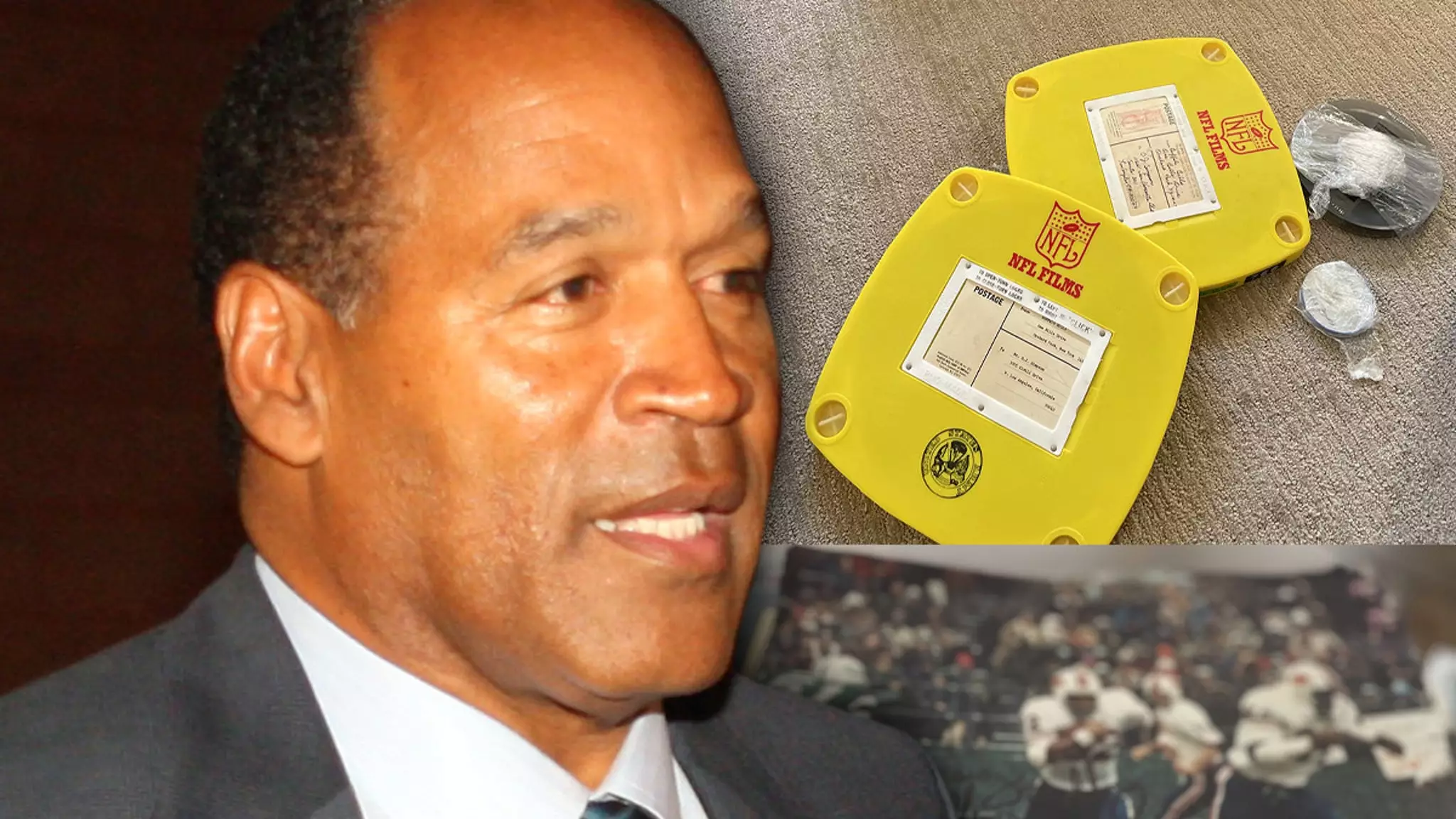The estate of O.J. Simpson, a figure whose life has continually oscillated between fame and infamy, is preparing to auction off a variety of personal belongings. This auction is not just about clearing out a space; it’s a significant moment in the ongoing narrative of a man whose achievements and controversies have shaped public perception over decades. Malcolm LaVergne, the special administrator managing Simpson’s estate, has proposed to conduct this auction between March 12 and March 29, highlighting the ever-unfolding drama surrounding Simpson’s legacy even after his passing.
The proposed auction boasts an eclectic mix of items that reflect both Simpson’s illustrious career and the more complicated moments that defined him. From high-profile photographs with political luminaries like Bill Clinton and Henry Kissinger to an iconic Andy Warhol painting, the items on the block carry with them significant historical as well as cultural weight. The presence of a signed Heisman poster and memorabilia from his film career, particularly his popular roles in the “Naked Gun” series, suggests that there is more to Simpson than his notorious past.
However, it’s important to note that the auction also includes more controversial items. Among them is Simpson’s alleged pornography collection accumulated during his time in prison. This stark inclusion serves as a reminder of his complex persona, one that intertwined celebrity status with legal troubles, ultimately leading to a legacy fraught with contradictions.
LaVergne’s push to auction off Simpson’s belongings isn’t merely about nostalgia or preserving his memory; it’s also a financial endeavor aimed at repaying creditors. The financial implications of Simpson’s life—both the wealth he amassed and the debts incurred—reveal much about how society grapples with celebrity and accountability. The estate’s decision to auction items aims to bridge that financial gap left after Simpson’s death, navigating the sensitive waters of both celebrity and responsibility.
Simpson’s children have until February 26 to object to the auction, an aspect of the process that underscores the complex family dynamics at play. This auction could symbolize a public negotiation over a legacy that is equally cherished and reviled. If objections are raised, they could impede the sale, with emotional ramifications for the family. Yet, if they remain uninvolved, the auction is likely to proceed, further entrenching the duality of Simpson’s life in the public eye.
As Simpson’s estate gears up for this auction, the act of selling such a diverse array of items shines a spotlight on the tension between memory and market. The potential sale of Simpson’s belongings serves not only as an exit from the past but also as an entry point into new discussions about fame, accountability, and the often-unforgiving nature of public scrutiny. This auction may close one chapter on the Simpson saga while simultaneously opening another, and as such, it serves as a poignant commentary on the life of a man who remains a polarizing figure in American culture.

Leave a Reply